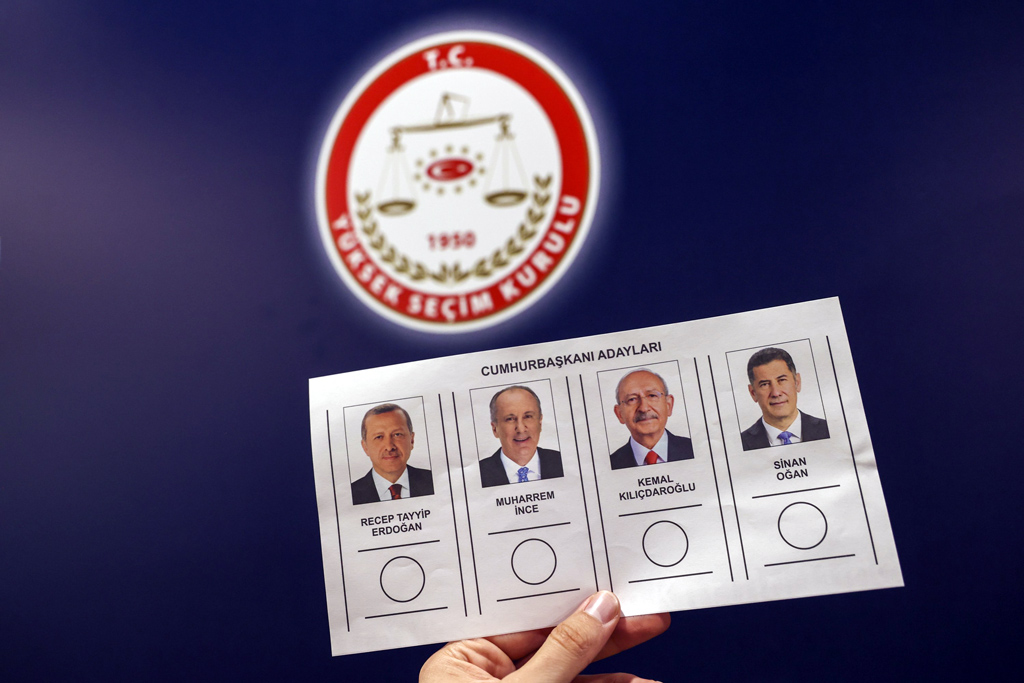President Recep Tayyip Erdoğan and Republican People’s Party (CHP) Chairperson Kemal Kılıçdaroğlu will run against each other in the 2023
presidential race in Türkiye. It will all boil down to one of the two leading candidates winning over undecided voters. That’s why I believe the final weeks to be extremely important and the race to be head-to-head.
The electorate closely follows each candidate’s campaign pledges regarding everyday economic life. Yet the main question, which will occupy minds inside the voting booth on election day, relates to who would govern the country better – including the economy, national defense and foreign policy. They will ultimately choose who they think will shoulder the country better than their opponent.
To some degree, that question is about disaster and earthquake preparedness in the wake of the Feb. 6 earthquakes in Türkiye. However, it also relates to which candidate would be more effective internationally as the global system experiences grave uncertainty and fierce competition. In other words, the candidates must inspire hope and address concerns.
Two decades of experience
Endorsed by the People’s Alliance, the incumbent distinguishes himself with two decades of experience and his active role in international politics. Treating national security, defense and foreign policy as parts of the same whole, he aims to consolidate Türkiye’s new axis – which has been under construction.
Having resorted to hard power, if necessary, in 2016-2020, Erdoğan risked tensions with the United States, Russia and some regional authorities. Over the last two years, he pursued normalization with the relevant countries to cement Türkiye’s gains. In addition to the United Arab Emirates (UAE), Saudi Arabia and Israel, the Turkish government has started a new chapter with Egypt.
The U.S. withdrawal from Afghanistan and the Russian invasion of Ukraine encouraged countries across the Middle East to diversify their alliances and address long-standing problems for normalization. Indeed, the Gulf states refused to take sides in the Ukraine war and China played a key role in promoting normalization between Iran and Saudi Arabia. Such developments signal the emergence of a new balance of power in the region.
At the same time, French President Emmanuel Macron’s pursuit of European strategic autonomy and, within that context, attempts to steer clear of the Taiwan crisis highlight the great powers’ diverging interests on a global scale.
Under Erdoğan’s leadership, Türkiye has been among the most active countries in this new global and regional chapter.
No serious pledges made
By contrast, Kılıçdaroğlu remains unimpressive, mainly in foreign policy, national security and national defense. His party has not made any severe pledges except dialogue with Syria and launching a new regional organization in the Middle East.
For the record, the Nation Alliance’s common policy document had already demonstrated the opposition’s fragmentation and ambiguity regarding foreign policy. Specifically, it was full of all-too-familiar ideas with which hardly anyone could disagree: national interests, institutionalizing relations based on equality and promoting alliances based on mutual trust.
Ironically, Türkiye’s relations with the U.S. remain strained exactly because Washington’s policies toward the PKK, the Gülenist Terror Group (FETÖ) and Syria are not compatible with an “alliance” nor “a relationship of equals.” Likewise, problems persist in Cyprus and the Eastern Mediterranean because the European Union supports Greece’s maximalist demands.
Grave problems
The opposition’s foreign policy approach seems unaware of the grave problems that could occur in Syria, among other places, if Türkiye were to stop pursuing a balance between the U.S. and Russia. The bottom line is that escalating tensions with Moscow or being pushed to the battlefield on the West’s behalf would seriously hurt our national interests. Abandoning the independent policy vis-a-vis NATO and the EU to become dependent on Western governments, in turn, would entail lethal blows, not gains, in Cyprus, Syria and the fight against terrorist organizations.
Meanwhile, the main opposition party’s pledge to launch a new regional cooperation platform with Iran, Iraq and Syria may seem like a good idea on paper, but it is out of touch with reality – just as its intention to immediately repatriate Syrian refugees contradicts its wish to have better relations with the U.S. and the European Union.
That inconsistent approach fuels concerns over Kılıçdaroğlu’s potential administration creating opportunities for the PKK/YPG in Syria and Iraq – not to mention FETÖ.
The comparison between Erdoğan and Kılıçdaroğlu goes far beyond the answer to the following question: Who would you rather have speak with Russian President Vladimir Putin on Türkiye’s behalf?
[Daily Sabah, April 17 2023]







